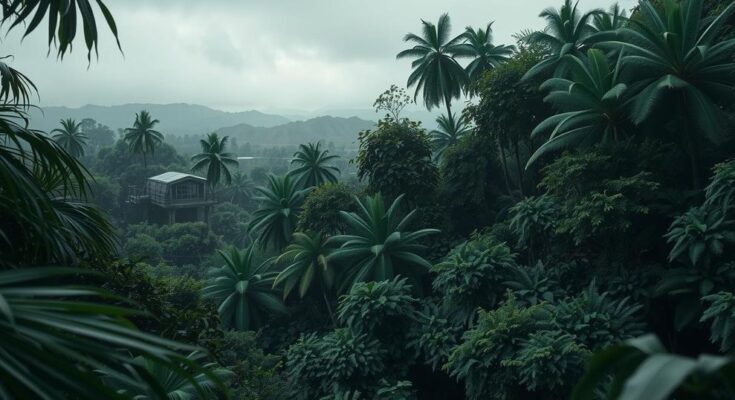M23 rebels, supported by Rwandan forces, have resumed hostilities in eastern DRC, capturing a mining town and leading to significant casualties reported in Goma. The renewed offensive follows a breached ceasefire and coincides with an upcoming summit of regional leaders. The DRC’s foreign minister has criticized the international community for inaction despite expressed concerns over the escalating violence.
M23 rebels, supported by Rwandan forces, have initiated a new offensive in eastern Democratic Republic of Congo (DRC), escalating tensions just before a planned crisis summit attended by the presidents of Rwanda and the DRC. The United Nations reports that recent battles for Goma have resulted in at least 2,900 casualties, significantly higher than the previous estimate of 900. The latest assault comes after the M23’s unilateral ceasefire was breached, with fighters taking control of a mining town in South Kivu as they advance toward Bukavu, the provincial capital.
Following their declaration of a ceasefire, the M23 stated that they would not pursue control of Bukavu. However, Congolese government spokesman Patrick Muyaya criticized this move as mere deception. Over three years of conflict have seen multiple ceasefires declared, each quickly disregarded. Observers report that all involved parties are bolstering their military presence in the region, amidst fears of increased violence.
The recent takeover of Goma marks a significant escalation of hostilities in an area plagued by conflict for decades. Vivian van de Perre, deputy chief of the United Nations peacekeeping mission in the DRC (MONUSCO), revealed that 2,000 bodies have been recovered from Goma, with 900 others in local hospitals. The UN’s International Criminal Court is monitoring the situation closely in light of the rising violence.
As the conflict looms over Bukavu, where residents have organized a prayer service for peace, the leaders of Rwanda and the DRC are set to participate in a regional summit in Tanzania. Concurrently, the UN Human Rights Council is convening a special session to address the crisis at the request of Kinshasa. While regional organizations and mediators are attempting to foster peace, DRC’s foreign minister criticized the international community for failing to take decisive action despite numerous declarations of intent.
Several neighboring nations have begun reinforcing their defenses to prevent any spillover from the escalating conflict. A UN report indicated that Rwanda maintains approximately 4,000 troops in the DRC, ostensibly to exploit the region’s mineral resources. While Rwanda denies direct military involvement, they accuse the DRC of harboring the FDLR, an armed group of Hutus associated with the 1994 Rwandan genocide.
The eastern Democratic Republic of Congo has been a site of unrest for over three decades, with various armed groups vying for control of its abundant natural resources, including precious minerals like coltan and gold. The M23, a rebel group backed by Rwanda, has been involved in ongoing conflicts against the Congolese army, leading to a cycle of ceasefires and renewed hostilities. The DRC and Rwanda’s complex relationship is further complicated by historical grievances and accusations of external military support, underpinning the current escalation of violence.
The situation in the eastern DRC remains critical as the M23 rebels escalate their offensive, leading to substantial casualties and undermining hopes for peace. Despite international concern and regional diplomacy, the cycle of violence appears to persist without resolution. The imminent summit of regional leaders may provide an opportunity for dialogue, but the effectiveness of their efforts remains to be seen amidst ongoing military actions and accusations.
Original Source: www.theguardian.com




